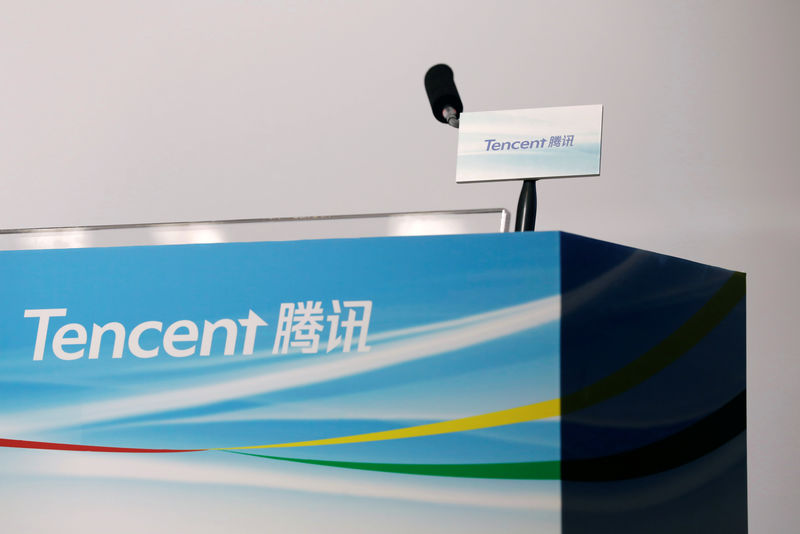By Sijia Jiang
HONG KONG (Reuters) - Tencent Holdings signaled it will reduce its reliance on gaming in China, where a regulatory review and one-off investment costs led to its sharpest-ever quarterly profit drop and slowest annual profit growth in 13 years.
"Our revenue mix is getting increasingly diversified, with fast growth from performance-based advertising and 'other' revenues," Tencent President Martin Lau said on Thursday.
Lau was referring to a segment that included Tencent's new cloud business, which posted its first annual revenue of 9.1 billion yuan ($1.36 billion). Lau added Tencent will add a new revenue category in its next earnings report to reflect the contribution from such fast-growing new businesses.
Asia's second-most valuable company also said it will move younger staff into middle management in a shake-up that will see around 10 percent of its managers retire or become consultants.
Tencent is battling a slowing Chinese economy which could weigh down the technology sector as well as prolonged regulatory setbacks to its main business of gaming, with a nine-month hiatus in new game approvals in China preventing it from making money out of some of its most popular games.
Net profit for the September-December quarter dropped by more than expected by 32 percent, the biggest decline since Tencent went public in 2004, to 14.2 billion yuan, in part due to one-off losses from its portfolio companies.
Smartphone games, Tencent's largest single revenue generator, grew 12 percent in the fourth quarter from a year earlier to 19 billion yuan, compared to 24 percent for 2018.
Lau warned Tencent's gaming releases in China this year would be initially be slower than previous years, this is due to a large backlog of requests the Chinese regulator has to go through. Tencent will seek to grow gaming revenue from overseas markets by exporting its games as well as investment, Lau said.
He declined to comment on Tencent's interest in bidding for South Korean gaming firm Nexon Co, a deal which could be worth as much as $13 billion.
Tencent's total revenue in the quarter rose 28 percent to 84.9 billion yuan, slightly ahead of an average estimate of 83 billion yuan from 19 analysts.
China's falling automobile sales amid the country's weakest economic growth in nearly three decades meant advertisers, especially big-ticket automobile firms, have "become more conservative" in their spending, Lau said.
Online advertising, accounting for around a fifth of Tencent's total revenue, grew at a slower pace of 38 percent in the fourth quarter.
The company recorded net other gains totaling 16.7 billion yuan for 2018, down from 20.14 billion yuan in 2017, mainly due to poorer investment gains, which Lau blamed on cyclicality and macroeconomic environment.
User numbers for WeChat edged up to 1.097 billion.
Shares in Tencent closed down 2 percent at HK$363 before the results, giving it a market value of around $449 billion.
The stock has risen by 15.6 percent so far this year, but the stock is still nearly 24 percent below its peak of HK$476.6 reached more than a year ago.
